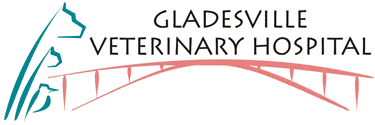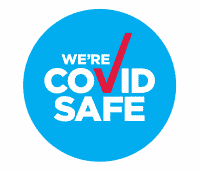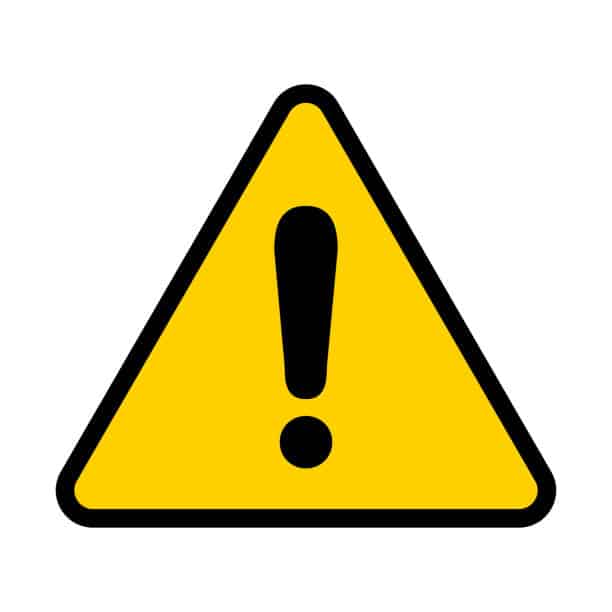Feeding your Puppy
Feeding your puppy correctly is not difficult or complicated but very important.
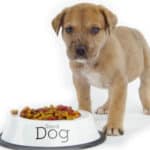 Try to find out what the pup was fed before you acquired him and start off with a similar diet. Once he has settled in, gradually change to a preferred diet.
Try to find out what the pup was fed before you acquired him and start off with a similar diet. Once he has settled in, gradually change to a preferred diet.
All changes to the diet should be made gradually to avoid stomach upsets or diarrhoea. The pup’s diet should be based on good quality commercial dog foods. Puppy kibbles are products available that are formulated especially to meet the needs of rapidly growing pups. Base your pup’s diet on these. A dry food or rehydratable dry food is best.
Canned food has a high content of water and cereal and is not always balanced. Introduce him to a wide variety of food tastes and types. A fussy puppy is usually made that way by indulgent owners.
The puppy knows if he puts his nose up at the dog food, the owner will run out and by barbequed chicken. Puppies do not starve themselves. If a puppy will not eat a good quality food that has been offered to him for more than a day, see your vet.
Always provide plenty of fresh, clean drinking water. Keep the water bowl clean.
Meat can be raw or cooked for pups, but remember that dogs need more than just meat. They require a balance of protein and carbohydrate and more minerals and vitamins than can be found even in the best steak. While liver, heart and kidney are full of nutrition, do not feed these rich foods as more than just a part of a meal, and even then not more than once a week. Pups digest meat more easily when it is minced but by the time they are three months old they should be getting pieces big enough to chew.
Vegetables should be cooked as the dog’s digestive system cannot efficiently digest raw vegetables. Raw vegetables can provide useful fibre and bulk, but are of little nutritional value.
Eggs should be cooked. The reason is twofold. Firstly, egg white contains ‘avidin’ which interferes with the absorption of some vitamins and bioten which can lead to a dry skin and coat.
Secondly, egg protein is more readily digested when cooked. A soft-boiled egg can be fed with its shell, as the shell supplies calcium.
Puppy Milk unfortunately cow’s milk does not agree with all pups, as some can be lactose intolerant. Provide your puppy instead with a good quality puppy milk. Pups do not need milk after about 12 weeks of age.
You need to watch they are not putting on excess weight which is hard to tell with a pup. A certain amount of fat is good for the coat and skin but if you are concerned ask your vet. The amount of calcium present in milk is not nearly enough for a puppy’s needs.
Raw Bones provide good exercise for teeth and gums and are also a good source of calcium. A shin bone from the butcher is perfect, ask the butcher to cut it up to a size appropriate for the size of your dog. Remove the marrow before giving it to your puppy as it is very high in fat and can cause diarrhoea. Raw chicken necks and raw chicken wings are also good. Never feed cooked bones as these are likely to splinter. Surprisingly cooking a bone makes it less digestible for dogs. The most dangerous bones are small fish and rabbit bones, bones with multiple projections such as neck bones or T bones, or small bones such as chump chop bones.
Frequency of Feeding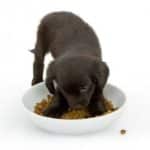
From 6 to 12 weeks pups need three or four meals a day. Twice daily is sufficient from 4 to 10 months for small breeds, and 4 to 16 months for large breeds.
Once daily feeding is adequate for older dogs. Dogs should be on a puppy diet until at least 12 months up to 24 months, depending on breed. As an adult dog, a good quality premium dry food is all your dog needs to meet his nutritional requirements for the rest of his life.
A premium dog food is formulated with all the nutrients your dog needs at each stage of life. Of course, lots of water must always be available. Large raw bones or chicken wings are always necessary for healthy teeth and gums. Too many can cause constipation. Some people give their dog a chicken wing each night without any problems. Just keep an eye out for problems.
Vitamin Supplements are not necessary if feeding your puppy or dog a balanced diet. They can be helpful if your puppy or dog is recovering from sickness or an accident. If you feed your dog a meat-only diet then he will need supplements as he will not be getting calcium for healthy bones or the necessary vitamins for growth, and he will be receiving too much phosphorus. In this case speak to your vet about what supplements are right for your dog. Oversupplementation with vitamins and minerals can be as dangerous as a deficiency of them. Any supplementation should be discussed with your vet.
Toxic Foods
Some foods that we eat are toxic to animals. Onions are toxic, though a little cooked with meat should not hurt. Macadamia nuts and chocolate are also toxic. Pear pips, the kernels of plums, peaches, apricots and apple core pips can be potentially dangerous. Broccoli and grapes in large amounts are also dangerous.
Some plants and bulbs in the garden are also toxic, if you are unsure ask your vet.
Have separate utensils for pet food and human food. Keep the dog’s food bowls and water bowls clean. Remind children to wash their hands after feeding or playing with pets. There are some bugs that can be transferred from pets to people and from people to pets.
Sensible hygiene and cleanliness can avoid any sharing of germs.
Train your children and well-meaning friends to not feed your pup from the table. The cute pup that is sneaking food from under the table now, won’t be so cute when you are entertaining your boss!
The most important thing to remember is to have fun with your pup. He will make you smile even when you have had the worst day.
References:
‘Everydog A Complete Book of Dog Care’ by Eric Allan & Rowan Blogg published by Oxford University Press, South Melbourne. 2003 Delta Society Australia
